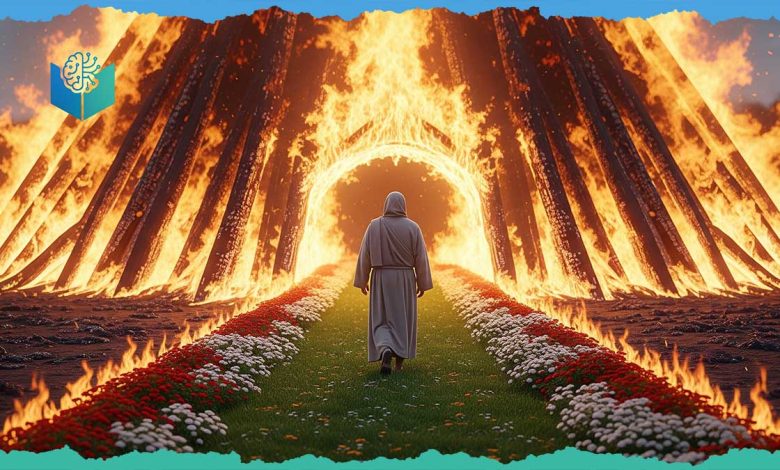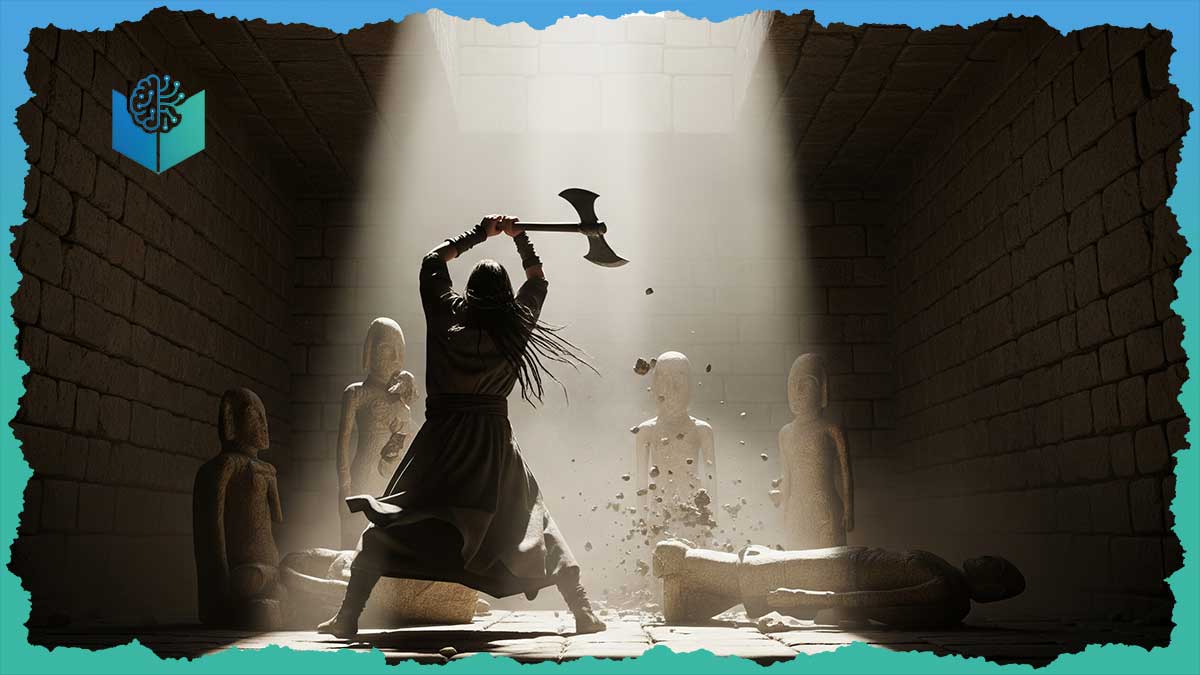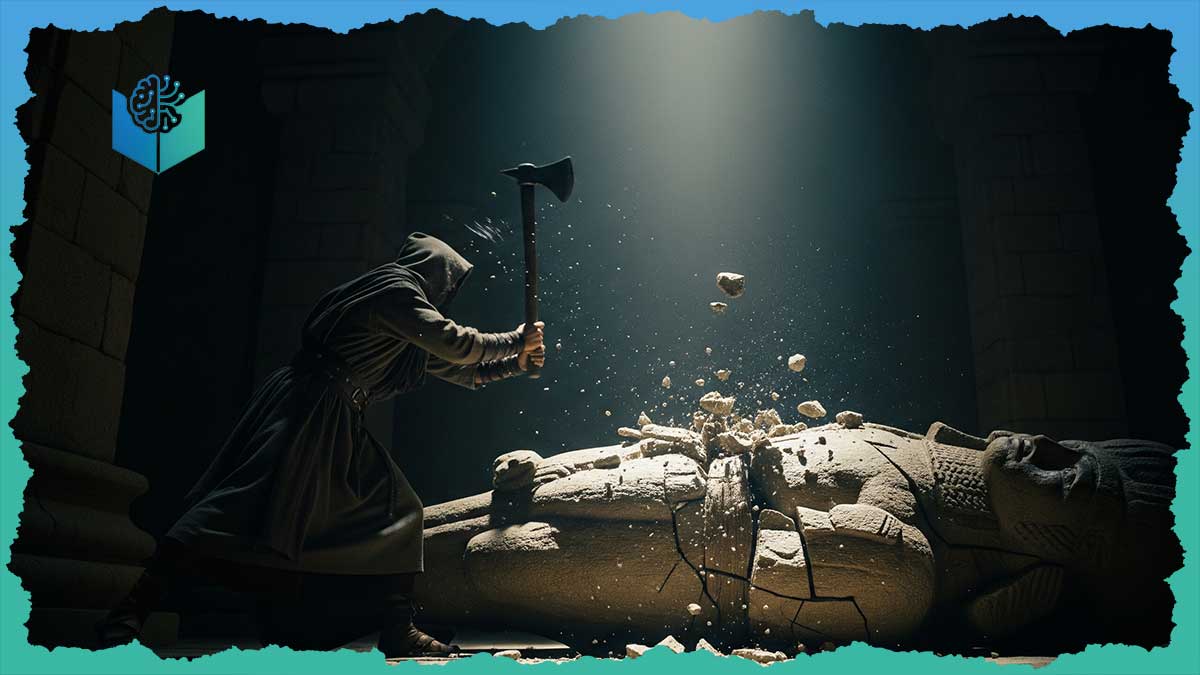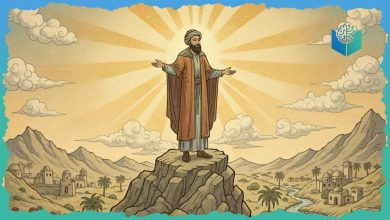The Prophet Abraham (Ibrahim)

The story of The Prophet Abraham (Ibrahim) stands as one of the most profound and influential narratives in human history, revered across Judaism, Christianity, and Islam. In Islam, Abraham (known as Ibrahim, PBUH) holds an exceptionally high status as a foundational figure, a forefather of prophets, and a perfect example of unwavering submission to Allah (God). His life, richly detailed in the Quran, is a compelling tapestry of trials, triumphs, and divine blessings that collectively teach humanity about true faith, sacrifice, and monotheism. The Story of Abraham is not merely a historical account; it is a timeless blueprint for every believer, demonstrating how absolute trust in Abraham and God leads to ultimate salvation and a lasting legacy. This article delves into the remarkable life of Ibrahim as depicted in abraham in islam, exploring his courageous journey, his pivotal role in establishing the first house of worship, and the enduring significance of his lineage.
The Early Life and Call to Monotheism
The Story of Abraham begins with his challenging youth in a polytheistic society, marked by his profound intellectual quest for the one true God.
Challenging Idolatry
Born in Ur of the Chaldees, Ibrahim’s people, including his own father, were idol worshippers. From a young age, Ibrahim questioned why people worshipped lifeless idols.
- Quranic Account: The Quran vividly describes Ibrahim’s logical arguments against idol worship. “And [mention, O Muhammad], when Abraham said to his father Aazar, ‘Do you take idols as gods? Indeed, I see you and your people in clear error.'” (Quran 6:74). He would reason with his people, highlighting the helplessness of their idols: “O my father, why do you worship that which does not hear and does not see and does not avail you anything?” (Quran 19:42). He even publicly challenged their beliefs by smashing their idols, leaving only the largest one, to make them reflect. This bold act of defiance is a cornerstone of the Story of Abraham and a powerful lesson in standing for truth.
- Significance: This early episode highlights Ibrahim’s profound intellect and his unwavering commitment to monotheism, even when it meant confronting his own family and community. It establishes him as a true prophets of god, showing he was unafraid to speak truth to power.

The Search for Truth: Astronomical Reflection
Ibrahim’s quest for the divine extended to contemplating the natural world, seeking the ultimate Creator beyond transient celestial bodies.
- Quranic Account: The Quran beautifully illustrates his intellectual journey: “And thus did We show Abraham the realm of the heavens and the earth that he would be among the convinced. So when the night covered him, he saw a star. He said, ‘This is my lord.’ But when it set, he said, ‘I like not those that set.’ And when he saw the moon rising, he said, ‘This is my lord.’ But when it set, he said, ‘If my Lord does not guide me, I will surely be among the misguided people.’ And when he saw the sun rising, he said, ‘This is my lord; this is greater.’ But when it set, he said, ‘O my people, indeed I am free from what you associate with Allah. Indeed, I have turned my face toward He who created the heavens and the earth, inclining toward truth, and I am not of those who associate others with Allah.'” (Quran 6:75-79).
- Significance: This deep reflection led him to the undeniable conclusion of one transcendent Creator, forming the core of his belief in Abraham and God. It’s a powerful quran story illustrating the path to certainty through observation and reason.
Trials and Unwavering Submission
The life of The Prophet Abraham was punctuated by severe trials, each demonstrating his absolute trust and submission to Allah’s will.
The Fire of Nimrod
One of the most dramatic tests for Ibrahim was his confrontation with King Nimrod, who, in his arrogance, ordered Abraham to be thrown into a blazing fire.
- Quranic Account: When Ibrahim refused to recant his faith, “They said, ‘Burn him and support your gods, if you are to act.’ We said, ‘O fire, be coolness and safety upon Abraham!'” (Quran 21:68-69). The fire, by divine command, became a source of peace and safety for him.
- Significance: This miraculous event underscores the immense power of Abraham and God’s protection for His righteous servants. It is a profound Story of Abraham that teaches about divine intervention and the ultimate futility of human tyranny against God’s will.

The Sacrifice of Ismail (Ishmael)
Perhaps the greatest test of Abraham’s faith was the command to sacrifice his beloved son, Ismail, who was born to him in his old age.
- Quranic Account: “And when he reached with him [the age of] exertion, he said, ‘O my son, indeed I have seen in a dream that I [must] sacrifice you; so see what you think.’ He said, ‘O my father, do as you are commanded. You will find me, if Allah wills, of the steadfast.'” (Quran 37:102). Just as Abraham was about to carry out the command, Allah replaced Ismail with a great sacrifice (a ram), thereby sparing his beloved son. This act of complete obedience and devotion defines Prophet Abraham’s legacy.
- Significance: This ultimate act of submission, demonstrating that Ibrahim valued God’s command above all else, is commemorated annually by Muslims worldwide during Eid al-Adha. It powerfully illustrates Abraham in Islam as the father of submission (since Islam literally means submission).
The Legacy of Prophet Abraham: Kaaba and Lineage
The legacy of Ibrahim extends far beyond his lifetime, deeply impacting the history of monotheism and the spiritual geography of the world.
Building the Kaaba
One of the most monumental achievements of Prophet Abraham was the rebuilding of the Kaaba in Mecca, alongside his son Ismail.
- Quranic Account: “And [mention] when Abraham and Ishmael were raising the foundations of the House, [saying], ‘Our Lord, accept [this] from us. Indeed, You are the All-Hearing, the All-Knowing. Our Lord, and make us Muslims [in submission] to You and from our offspring a Muslim nation [in submission] to You. And show us our rites and accept our repentance. Indeed, You are the Accepting of repentance, the Merciful.'” (Quran 2:127-128). This sacred structure became the first house of worship dedicated solely to the One God and serves as the Qibla (direction of prayer) for Muslims globally.
- Significance: The Kaaba symbolizes the unity of God and the unity of humanity in worship, serving as a central point for Muslims worldwide. Its construction by Abraham cements his enduring role in Islamic spirituality and pilgrimage. Understanding this deep connection can be aided by resources found on platforms like ayaat.ai.
The Sons of Abraham and Prophetic Lineage
Prophet Abraham was blessed with two prominent Sons of Abraham: Ismail (Ishmael) and Ishaq (Isaac), from whom a vast lineage of prophets descended.
- Ismail and the Arab Lineage: From Ismail came the lineage of the Prophet Muhammad (PBUH), continuing the chain of divine guidance in Arabia. Ismail is particularly revered in abraham in islam for his role in building the Kaaba and his willingness to be sacrificed.
- Ishaq and the Israelite Lineage: From Ishaq came prophets like Yaqub (Jacob), Yusuf (Joseph), Musa (Moses), Dawud (David), Sulaiman (Solomon), and Isa (Jesus), continuing the prophetic tradition among the Children of Israel.
- Significance: This dual lineage highlights Abraham as the patriarch of all monotheistic faiths, uniting them through a shared spiritual ancestry. His prayer for a nation submitting to Allah was answered through these blessed lines, fulfilling his aspiration to see prophets of god emerge from his progeny.

Lessons from the Life of Abraham
The Story of Abraham offers profound guidance for every individual striving for a life of faith and devotion.
Absolute Trust (Tawakkul) in Allah
Ibrahim’s life is a masterclass in Tawakkul. Whether facing fire, famine, or the command to sacrifice his son, his reliance on Abraham and God was absolute, demonstrating that true faith means surrendering entirely to His will.
The Importance of Da’wah (Calling to God)
Despite facing overwhelming opposition, Ibrahim never ceased inviting his people to the truth. His methods – through logical argument, personal example, and even dramatic acts of defiance – teach us the importance of persistent and wise communication of faith.
Sincerity and Submission (Islam)
The name “Muslim” (one who submits) is deeply connected to Ibrahim, as he perfectly embodied submission to Allah in every aspect of his life. His sincerity in all his actions, from building the Kaaba to being ready to sacrifice his son, sets the standard for genuine devotion.
Conclusion
The life of The Prophet Abraham (Ibrahim) is a magnificent quran story and a cornerstone of faith for billions across the globe. His unwavering commitment to monotheism, his profound submission to God’s commands, and his enduring legacy through the Kaaba and his Sons of Abraham continue to inspire and guide humanity. The Patience of the prophets in Quran finds its ultimate expression in his journey, offering timeless Lessons in patience from prophets and demonstrating the power of Prophetic perseverance. As a perfect exemplar of Patience and trust in Allah, Ibrahim embodies the essence of a true Quranic lifestyle. His story encourages us to confront idolatry in all its forms, whether external or internal, and to cultivate an absolute reliance on the One God, just as Abraham did, thereby securing a blessed legacy both in this world and the Hereafter.
Q&A
Is the Prophet Ibrahim the same as Abraham?
Yes, Prophet Ibrahim in Islam is indeed the same revered figure as Abraham in Judaism and Christianity. He is recognized across all three Abrahamic faiths as a pivotal patriarch and a symbol of monotheism and unwavering faith in God.
What is the story of the Prophet Ibrahim?
Prophet Ibrahim (Abraham) bravely stood up against idol worship, even his father's. God miraculously saved him from a fire. His biggest test was being asked to sacrifice his son, Ismail, which showed his complete devotion to God. He also rebuilt the Kaaba.
What is the prophet Abraham known for?
Prophet Abraham (Ibrahim) is known for his unwavering belief in one God, even facing fire. He's revered for being a father of prophets and for building the Kaaba in Mecca.





